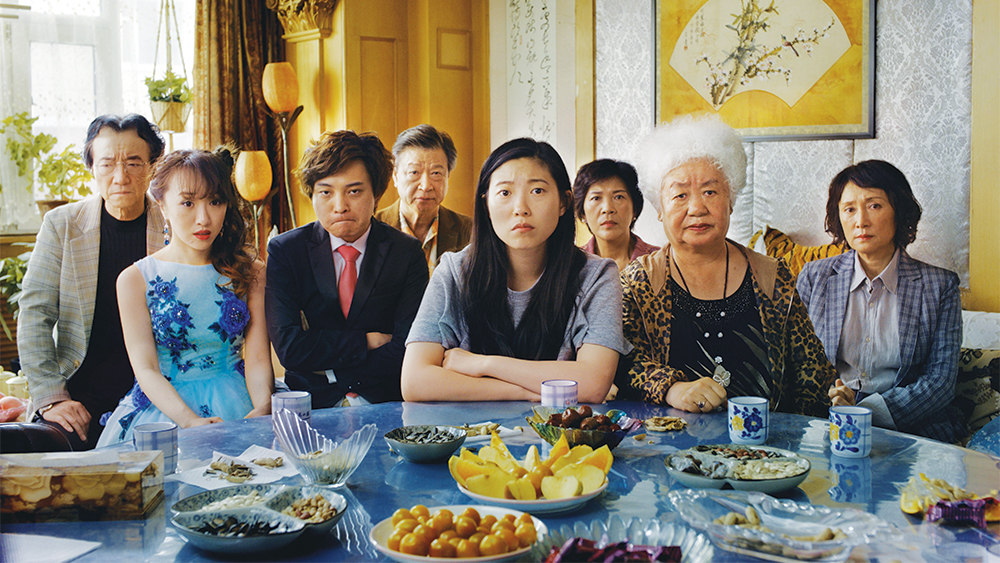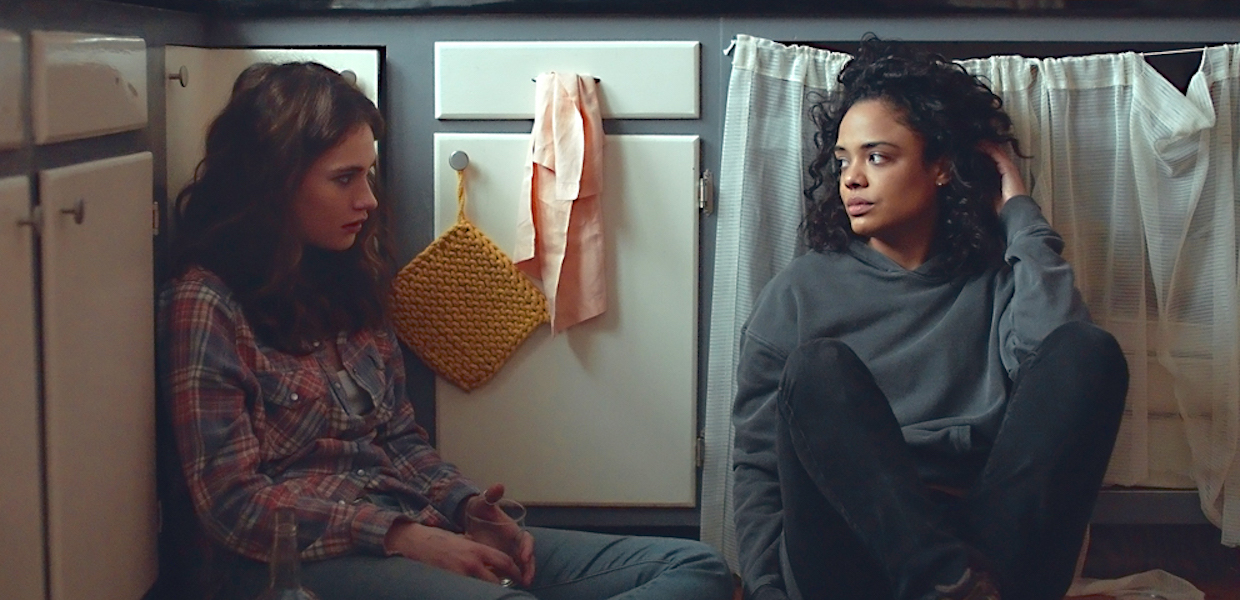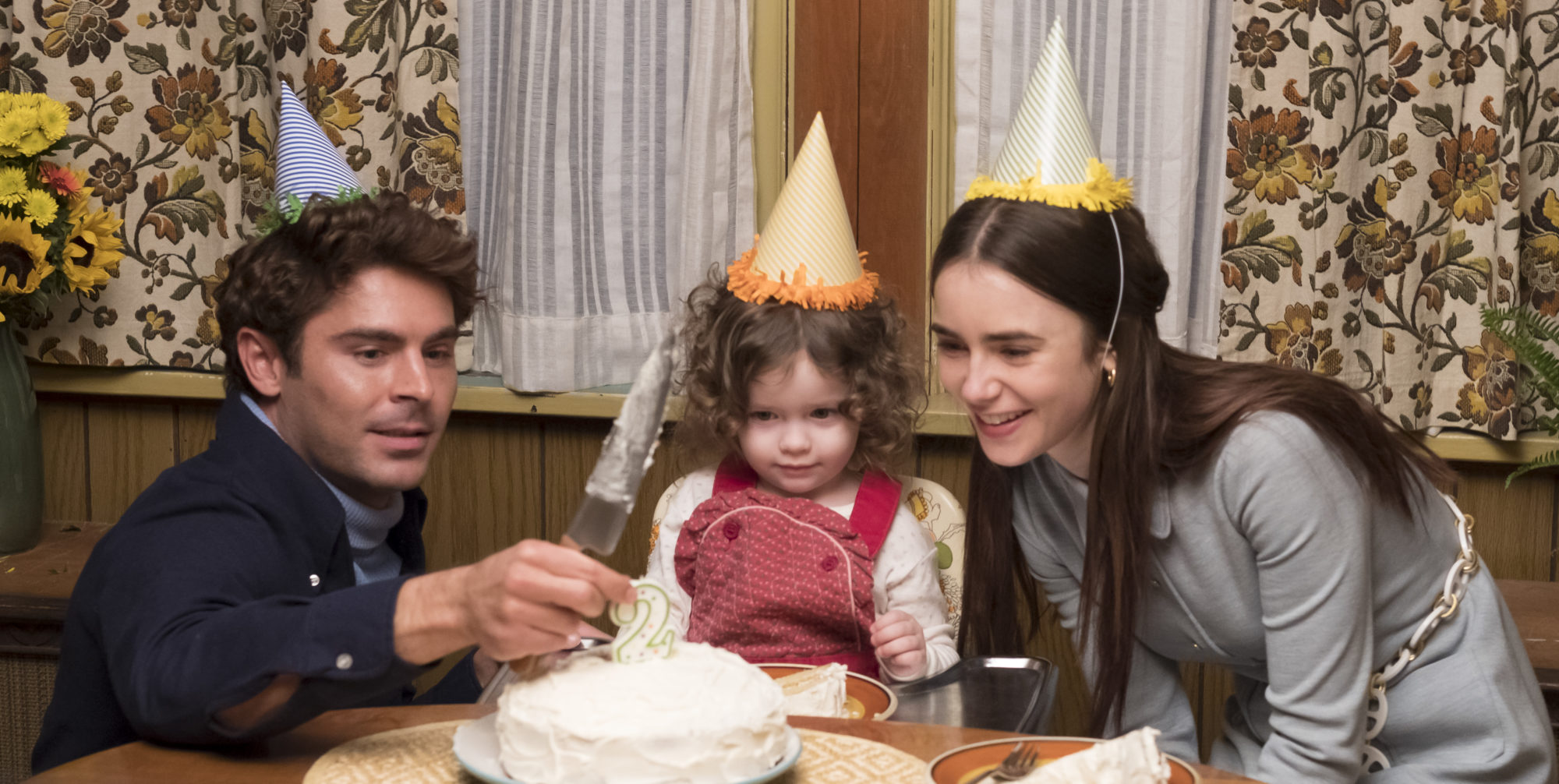The 43rd Annual Atlanta Film Festival
Nia DaCosta/Matt Mitchell, Little Woods, film still courtesy of Atlanta Film Festival
Share:
As with most trips to a movie theater, every screening at the 43rd Annual Atlanta Film Festival began with a commercial reel highlighting sponsors and upcoming programming. The reel promoted a narrative reflected in the festival’s literature and introductions given by representatives before each screening—a narrative of increasing diversity in film and of Georgia’s importance in furthering innovation in the industry. The audience, which included a variety of locally based industry members, responded to the reel with cheers and applause. That same energy pervaded the atmosphere of the festival throughout the week. The competition to become a festival selection speaks to its importance in the independent-film circuit: the event’s website reports that the approximately 200 pieces of programming in this year’s event made the cut amid 8,414 submissions.
One of the standout elements was the plethora of programming starring women or featuring women-dominated creative teams, referred to as “New Mavericks” films by festival literature. Writer/director Lulu Wang’s The Farewell, a semi-autobiographical family drama starring Awkwafina as a young adult who confronts the cultural differences between her extended family and herself, was the official opening night screening. Awkwafina’s Billi approaches the film’s conflict—whether to inform her dying grandmother of her cancer diagnosis and prognosis or maintain silence alongside the rest of the family—with empathy and concern that is indicative of the overall tone of the film’s performances. The warmth of the performances finds counterpoint in the angst of often heated interactions among the members of Billi’s family. Anna Franquesa Solano’s cinematography captures that conflict beautifully, pairing intimate and tableau arrangements of the ensemble cast with nondiegetic, surreally lit close-ups mirroring Billi’s internal state. This seamless collaboration between the narrative and visual elements made The Farewell a highlight of the entire festival.
Lulu Wang/Anna Franquesa and Solano, The Farewell, film stills courtesy of Atlanta Film Festival
Another character-driven piece, the neo-western Little Woods, continued the theme of women-led projects, with Nia DaCosta as both writer and director. The film focuses on the relationship between two sisters (played by Lily James and Tessa Thompson) and their struggle to survive poverty, a lack of accessible and affordable health care, and opioid addiction in the rural United States. By focusing on a fraught sibling relationship and involvement in criminal activities, Little Woods treads ground similar to that of modern western dramas such as 2016’s Hell or High Water. However, by framing the plot with long, slow-paced shots centered on the sisterly relationship at the film’s core, Little Woods creates its own space in the genre.
Whereas much of the festival’s programming either explicitly or incidentally revolved around young adulthood, Pause presented, instead, a claustrophobic and demanding meditation on aging. Told by filmmaker and co-writer Tonia Mishiali via a combination of sobering reality and the often violent escapist fantasies of the main character (played by Stella Fyrogeni), Pause builds a cage of abuse and financial dependency that is suffocating to experience. Persistent close-ups and a bleak, muted color scheme create visual claustrophobia, heightening the narrative from simply sobering to frustrating and, at times, terrifying. The result is a viscerally impactful blend of fantasy and reality demanding the viewer’s full attention.
Nia DaCosta/Matt Mitchell, Little Woods, film still courtesy of Atlanta Film Festival
Arguably one of the most anticipated features of the festival was Extremely Wicked, Shockingly Evil and Vile—a narrative film based on Elizabeth Kloepfer’s experience before and throughout the trial, conviction, and eventual execution of her long-term boyfriend, Ted Bundy. The film’s crux is a contemplation of the banality of evil—the idea that an outwardly charming man could have a typical home life and simultaneously be capable of prodigious, horrific cruelty. Zac Efron’s casting as Bundy serves this goal well, and the film uses his reputation as a teen heartthrob in the High School Musical series to further our understanding of how Bundy escaped earlier consequences for his actions and even developed a fan base during his trial. Efron’s Bundy is believably charismatic and manipulative, and Lily Collins’ Kendall is empathetic without coming off as willfully ignorant. The concept is intriguing, though the film struggles to offer a new voice within a cultural landscape crowded by Serial, American Crime Story, and a plethora of other true crime media.
Although the Atlanta Film Festival might not serve as a market indicator for Georgia’s continued relevance in filmmaking, it certainly captures a snapshot of the state’s role in film at the current moment. The festival—as well as the local sponsors who profit from the influx of projects thanks to the state’s continuing tax incentives—sought to promote Georgia as a hub of innovation and diversity in the film industry. By highlighting films focusing on relationships and the interior lives of their characters, and also by showcasing a wide array of emergent filmmakers and storytellers, the festival’s organizers made a compelling argument for the continuing role of Georgia, and Atlanta, in the film industry.
Joe Berlinger/Brandon Trost, Extremely Wicked, Shockingly Evil, and Vile, film stills courtesy of Atlanta Film Festival


